#oliver twist 1948
Text
Which version of this do you prefer?
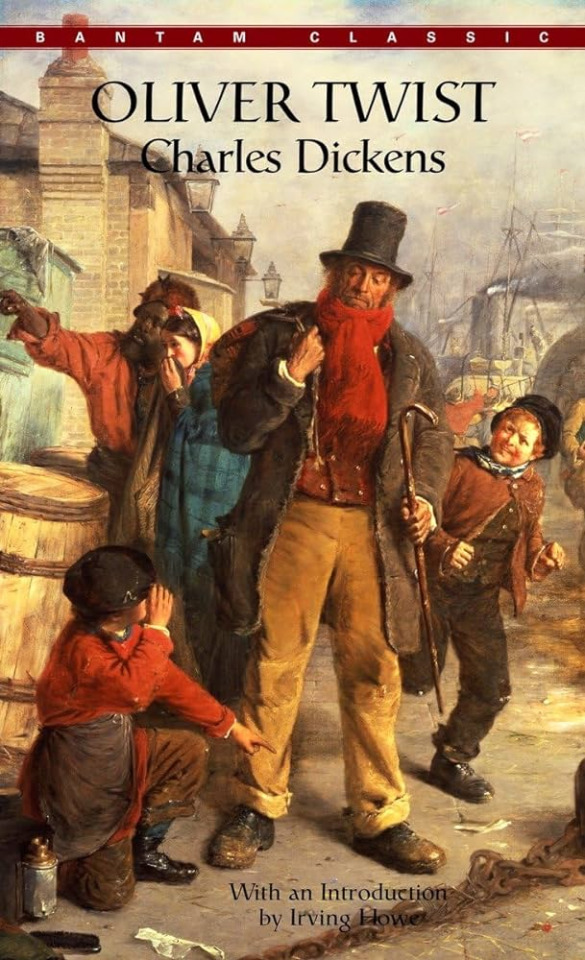
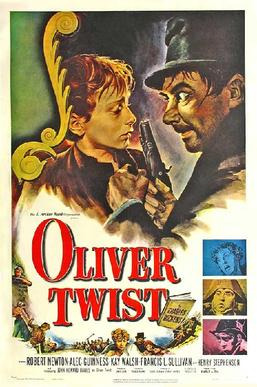
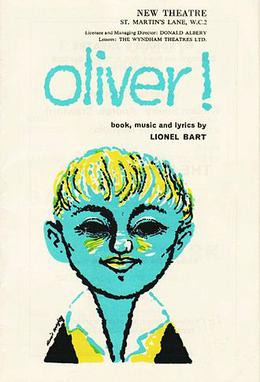
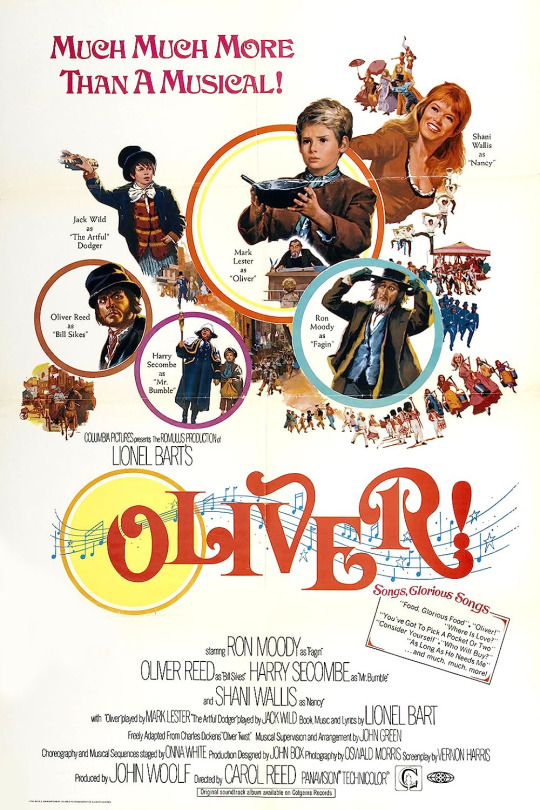
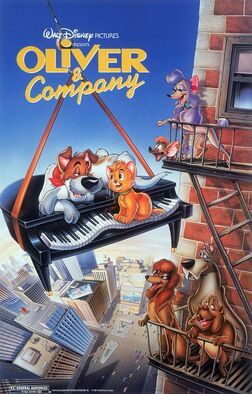
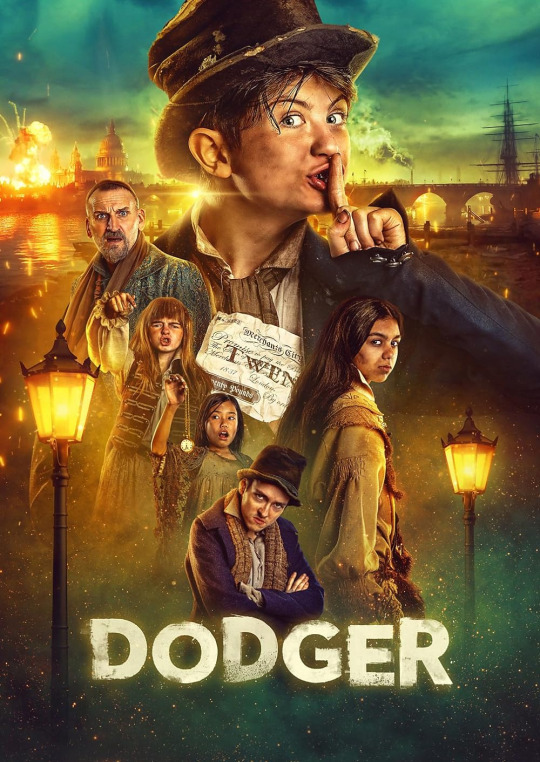
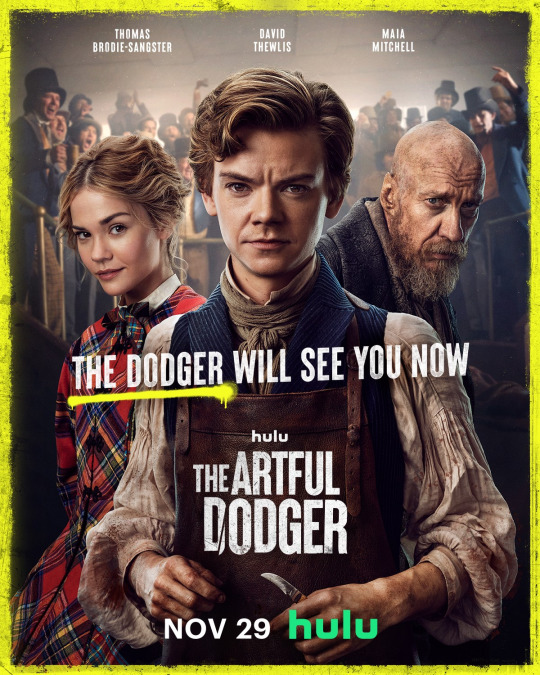
Note: 1968 option should say movie musical and not musical musical lol sorry about that
#okay another oliver poll was supposed to be the second post for yesterday but didnt leave the queue#then disappeared from the queue but didn't post#so now I'm putting it up manually. hopefully it doesn't double post?#but oh well if it does I'll take one down#guess it gives me a chance to add oliver and company which I actually did just forget to put on the first vrsion#anyway hope this isn't a sign my queue is starting to eat my posts :(#oop okay the other version did go up like 45 minutes after it vanished lol. deleting that one and keeping this one since in has O&C on it#polls#tumblr polls#adaptation polls#charles dickens#oliver twist#oliver twist 1948#oliver!#oliver! 1968#oliver musical#dodger tv show#the artful dodger#the artful dodger hulu#oliver and company#films#tv shows#theater#musical theater#musicals#books#classic literature#animation#animated films#movie musicals
11 notes
·
View notes
Note
HI:
I finally watched Oliver Twist for the first time! I liked it a lot. Problematic makeup/offensive stereotype that's baked into the story aside, I thought it was brilliant. I can see so much from that film being borrowed by others, and the main one is Carol Reed. There is so much similarity between the look of Oliver Twist and the Third Man. I think he even borrowed the idea of the cat from Bill Sike's dog...
But I still need to figure out where it fits in my ranking based on how gay it is...
I feel like it's got a very dark edge to it and that is the hint there is a trafficking element to the relationship between Fagin and the boys. Over and over we hear that Oliver is "a nice looking boy" and this is almost always remarked on by older men such as Bumble, Brownlowe and Fagin. All of them say it all of them have Oliver in their custody for a time. In a sense they OWN him and he can be forced to steal for them or work for them or not as the case may be but of course Oliver never has any agency in any of this.
What are your thoughts on this?
Hellooo and thank you for sharing your thoughts with me!
I think David Lean's Oliver Twist is an untimely masterpiece and it's even more visually stunning and bolder than his previous work Great Expectations; he must have gained enough confidence from GE's success since breaking away from Noël Coward's protective wings and wanted to take a larger step with Oliver Twist. If I am to rank DL films, I'd put Oliver Twist in 3rd after Lawrence of Arabia and Brief Encounter. Nonetheless, aesthetic advancement is no excuse for ideological backwardness. It was very unfortunate that David Lean dared not even try taking a more critical approach to Dickens's offensive original text, instead he buried his head in sand trying to ignore Fagin's racial background and wishing no one read the book.
I'm glad someone finally mentions the interrelations between David Lean (especially his early films) and Carol Reed. Fun fact: David Lean first got into directing because of Carol Reed. Noël Coward wanted to make the war film In Which We Serve and Carol Reed told him he could never make it without David Lean. Lean was strongly influenced by Reed when he first started, the most notable example is the slanting composition in Brief Encounter when the suicidal Laura rushes out of the refreshment room. So I guess it's very possible and natural that Reed got one or two ideas from Lean's films as well (he saw GE and enviously said to Lean: I hope you throw yourself under a bus). But it's more likely that the cat is in Graham Greene's novel, I never read the novel so I can't say for sure.
As for the gay ranking, it's getting a bit too far innit XD. Oliver is like 10 or 11 of course he doesn't have agency and that he happens to be good-looking doesn't make his protectors/exploiters gay I guess 😭😭? But it's worth mentioning that in the novel Brownlow adopted Oliver not because he is Oliver's grandfather (as in the movie) but because Oliver is son to his deceased best friend whom he addresses as "my love" .
P.S. Reed himself made an Oliver Twist adaptation in 1968: Oliver! which I haven't seen yet.
8 notes
·
View notes
Text
There is a scene in David Lean's Oliver Twist where Bill Sikes (Robert Newton) wakes up after murdering his girlfriend in a drunken rage the night before. It's clear that he doesn't really remember what happened but he wakes up and finds her dead body. It's a brightly lit room (as contrast to most of the movie which is all shadows and greasy cobbles and chiroscura lighting) and there is no music in the scene, just the noise of passersby on the street outside, traffic etc.
Lean shows us Bill's face (and Newton's acting here is absolutely minutely perfect) in a long, relentless take and then he cuts away to Bill's dog who is absolutely terrified. That little guy gives the performance of a lifetime. The dog knows that Bill murdered her and he knows what is going to happen when Bill realizes he murdered her and you imagine it's at this point that Bill would normally lash out at the dog. Instead Bill opens the door and is about to leave and we see the dog launch himself across the room to get out of the door ahead of him.
Later, the dog leads the angry mob to Fagin's hideout because Bill is with them there. Bill goes out in the street to silence the dog, but the mob is already coming down the road, it's too late.
All of this is silent, done without much if any dialog. The whole thing with the cobblestones and the dog reminds me so much of The Third Man which came out the next year and had a big chase across wet cobblestones involving an animal that was associated with the person being hunted...
#David Lean#Oliver Twist#Oliver Twist 1948#Robert Newton#also wonder if Lean wasn't also giving a Nod to The Lost weekend which is about an alcoholic who wakes up after a bender and#has to reconstruct the events he doesn't remember to clear his name of murder#I think it's a very humanizing moment and Robert Newton absolutely KILLS it#but you kind of wonder like does Bill Sikes deserve a humanizing moment???
6 notes
·
View notes
Text
Awwww. Nice ending.
#oliver twist 1948#oliver twist#mr brownlow#mrs bedwin#fagin#bill sykes#nancy sykes#artful dodger#mrs thingummy#mr bumble#mrs corney#mr sowerberry#noah claypole
3 notes
·
View notes
Photo















YESTERDAY’S VIEWING...1948...OLIVER TWIST
5 notes
·
View notes
Text
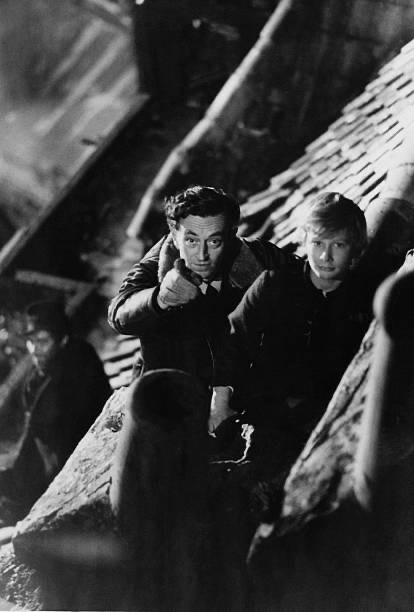
David Lean directing John Howard Davies in OLIVER TWIST (1948)
26 notes
·
View notes
Text

A production still shows a camera crew filming Robert Newton and John Howard Davies in the climactic rooftop scene of David Leans 1948 version of OLIVER TWIST.
6 notes
·
View notes
Text

Kay Walsh, November 15, 1911 – April 16, 2005.
With her husband at the time, David Lean, during the making of Oliver Twist (1948).
32 notes
·
View notes
Text
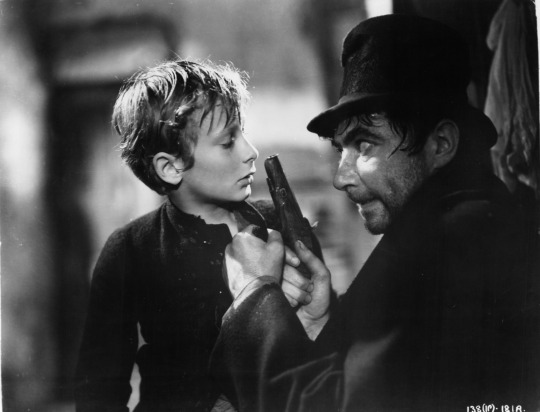
John Howard Davies and Robert Newton in Oliver Twist (David Lean, 1948)
Cast: Robert Newton, Alec Guinness, Kay Walsh, John Howard Davies, Francis L. Sullivan, Henry Stephenson, Mary Clare, Anthony Newley. Screenplay: David Lean, Stanley Haynes, based on a novel by Charles Dickens. Cinematography: Guy Greene. Art direction: John Bryan. Film editing: Jack Harris. Music: Arnold Bax.
After George Cukor's 1935 David Copperfield, this is my favorite adaptation of Dickens for film or TV. What Lean does right is to treat the Dickens book as a fable, not a novel. A novel takes its characters seriously as human beings; a fable sees them as embodiments of good and evil. And there's plenty of evil on display in Oliver Twist, from the brute evil of Bill Sikes (Robert Newton) to the venal evil of Fagin (Alec Guinness) to the stupid evil of Mr. Bumble (Francis L. Sullivan) and Mrs. Corney (Mary Clare). Oliver (John Howard Davies) is innocently good, whereas Mr. Brownlow (Henry Stephenson) is a man of good will. Nancy (Kay Walsh) and, to a lesser extent, the Artful Dodger (Anthony Newley) are potentially good people who have been corrupted by evil. The performers are all beautifully cast, especially Davies as Oliver: He's just real-looking enough in the role that he doesn't become saccharine, the way some prettier Olivers do. This is Lean in what I think of as his great period, when he was making beautifully filmed movies with just the right measure of sentiment: Brief Encounter (1945) and Great Expectations (1946) in addition to this one. But he would be bit by the epic bug while working on The Bridge on the River Kwai (1957), and its success would betray him into bigger but not necessarily better movies: Lawrence of Arabia (1962), Doctor Zhivago (1965), and the rest of his later oeuvre would have the same attention to visual detail that make his early movies so rich, but they seem to me chilly in comparison. Here he benefits not only from a perfect cast, but also from Guy Green's photography of John Bryan's set designs. There are probably few more terrifying scenes in movies than Sikes's murder of Nancy, which sends Sikes's dog (one of the most impressive performances by an animal in movies) into a frenzy. Running it a close second is Sikes's death, seen from a vertiginous rooftop angle. We don't actually see the death, but only the swift tautening of the rope as he plunges, punctuated by a sudden snap. The film is not as well known in America as in Great Britain: Guinness's portrayal of Fagin elicited charges of anti-Semitism, especially since the film appeared so soon after the world learned about the Holocaust. Guinness doesn't play to Jewish stereotypes, but Fagin's absurdly exaggerated nose (which makeup artist Stuart Freeborn copied from George Cruikshank's illustrations for the novel) does evoke some of the caricatures in the Nazi newspaper Der Stürmer. The film was edited to remove some of the shots of Fagin in profile, and was held from release in the United States until 1951.
6 notes
·
View notes
Text
King of the Witches - A Review | Chapter Four – Call Down The Spirits
King of the Witches Chapter Four – Call Down The Spirits
Introduction | 1 - The Young Initiate | 2 - A Magic Childhood | 3 - The Haunted Hill | 4 - Call Down The Spirits | 5 - Bewitched
When last we met we looked over Chapter Three, The Haunted Hill, (unrelated to Elvira’s Haunted Hills) where Sanders experiences visions of the Pendle Witches and also gets initiated to the Third Degree by having ritual sex with his grandmother. Why someone would make that story up about themselves and then willingly tell it to other people, I cannot say. Fortunately this chapter is way less fucked up and contains 100% less geriatric incest.

The year is 1943, Alex Sanders is 17, and starts attending Spiritualist meetings, probably because there was a girl there he fancied, and also to see if it had anything in common with witchcraft. I expect that the connection here is the visions he allegedly had on Pendle Hill. He started training under them to be a medium but was covertly using witchcraft to obtain visions and perform healings through laying-on of hands. His talents in this area bring more people in to the Spiritualist church, which becomes quite large. One issue was communication with the dead: he was apparently uncomfortable with this because it was too close to necromancy “to which witches object”, although precisely how this is different from his earlier attempts to raise his grandmother’s shade I cannot say.
At work he met a young lady, Doreen (no, not St. Doreen, a different one), and they got married on July 17, 1948. He was 22, she was 19. According to the book the marriage was basically doomed from the start, with Sanders feeling trapped and worried about his lack of advancement prospects, low wages and a baby on the way. He can’t work magic to advance in his field because witches cannot work alone (there’s that idea again) and Doreen has no idea he is a witch anyway. This point is contradicted by other Sanders material, such as interviews where he comments that she disliked his unusual religious practices, especially that of working in the nude. Confusingly he has visions of himself being wealthy and successful, wearing fine clothes amid glamourous friends in a splendid ballroom, but once again visions of death as well – this time of a woman.
His medical lab work gives him the opportunity to compare industrial formulae with those of witchcraft recipes which sometimes leaves the industrial items wanting, and is unaware that his marriage is falling apart, with his wife spending much time at her mother’s. Along comes baby Paul, and three years later baby Janice who was born with a twisted foot. The doctor says this can be corrected but it would be best to wait until she was 13 or 14, but Sanders works some magic to find out what to do, and is told to rub olive oil into the joint, which he then manipulates back into place. Good as new!

Sadly this miraculous recovery does nothing to help the failing marriage, until one day when he was 26 (1952 or 1953) he comes home and finds that Doreen has packed up and left, with the children. Soon afterward his workplace burns down, so now he has no family, no job, and no prospects. His sister Joan spends a lot of time with him consoling him, and one day suggests they re-decorate the kitchen. They stay up all night painting, and realize it is Shrove Tuesday (assuming this happened in 1953 it would have been Feb 17th). They make pancakes and Sanders confesses to Joan that he practices witchcraft, telling her what I hope is a sanitized version of what happened with his grandmother. She disbelieves him, mockingly telling him to conjure up a demon.
Apparently Sanders kept his witchcraft tools just lying about (did he stop trying to hide things after Doreen left?), because he grabs his athame and starts conjuring up a demon, “someone they both knew” (where did he get this conjuration from?). This presumably works, because someone actually does come and knocks at the door – a family friend in need of a place to stay at three in the morning. Joan refuses to let him in the house.
Frightened, Joan tells him he has to stop playing with magic, but the embittered Sanders just goes off on a tear about all the ways life has let him down (in this modern age I wonder if he would have become one of those blackpilled incel Redditor types) and has no wealth, money, or prospects, and that he will start using magic to get it – wealth, luxury, leisure. Nevermind that he had just told Joan magic shouldn’t be sued for selfish ends! He sets up a magic Circle and gets ready to work.

“By the light of candles he described a magic circle with his sword, excluding Joan. When she made as if to speak he told her to keep quiet, or get out. The air became heavy with incense as he worked the spells and recited the words that would lead him from white witchcraft to black.
‘By all the powers I command the demons to bring me wealth, riches, power…’
Joan sobbed quietly, not understanding all that was going on but realizing that her beloved brother was bargaining for his soul with the devil and that, in the end, someone would have to pay.”
OK, so this is the part I have some major questions about, namely: where did he get this ritual from? At this point in his story he hadn’t had contact with any other witches or magicians, he hadn’t read anything on the subject anywhere, so…..was this ritual in his grandmother’s Book of Shadows and then copied by him into his own? Why did she have this? Where did she get it from? What spells was he working? Was this some fancy Ars Goetia-style conjuration kind of deal, or what? And which particular demons? All of them? To the best of my knowledge this sort of demonic material isn’t exactly, uh, common in traditional Wiccan material (unless those Third Degrees are keeping it all to themselves, the greedy buggers), and I can’t see how Sanders would have come across any of this kind of thing.
Obviously this is all complaining on my part because Sanders didn’t actually have any contact with witches of any sort until he saw the Crowthers on TV in 1961, but it’s the lack of internal consistency in the narrative of his life that he is presenting here that bothers me. I don’t think of myself as being extremely intelligent, I’m a college drop-out for God’s sake, but even I, being a simple Canadian of humble means, am able to see massive plot-holes in the story presented here, and it’s bugging the shit out of me.
Join us next time for Chapter 5 - Bewitched, in which things Get Weird again.
#Wicca#Witchcraft#Pagan#Alex Sanders#Alexandrian Wicca#Alexandrian Traditon#Traditional Wicca#Traditional Witchcraft#King of the Witches#June Johns#review
9 notes
·
View notes
Text
youtube
Oliver Twist (1948) Review - When Oliver Twist (John Howard Davies) is born his mother gives birth to him in a work house and then sadly passes away. Oliver grows up poor and is forced to move to a place where he is picked on by another child. Oliver escapes and is invited into the seedy criminal underworld. Will Oliver be able to escape his plight or is he doomed to a life of poverty and crime? You'll have to tune in to find out!
#Movie Review#Film#Movies#Charles Dickens#Robert Newton#Oliver Twist#alec guinness#Period Piece#Rotten Tomatoes#Youtube
5 notes
·
View notes
Text
Alec Guinness Filmography Part 1
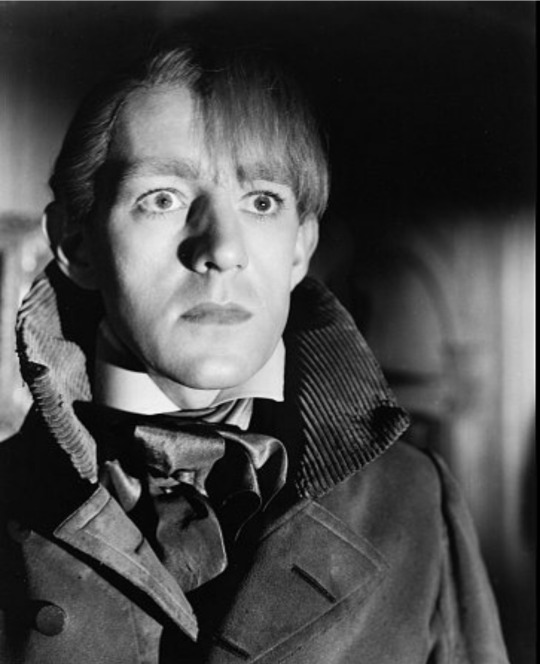
Great Expectations (1946)

Oliver Twist (1948)
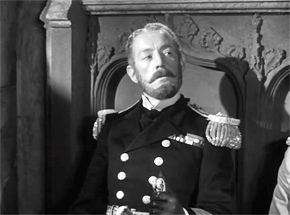
Kind Hearts and Coronets (1949)
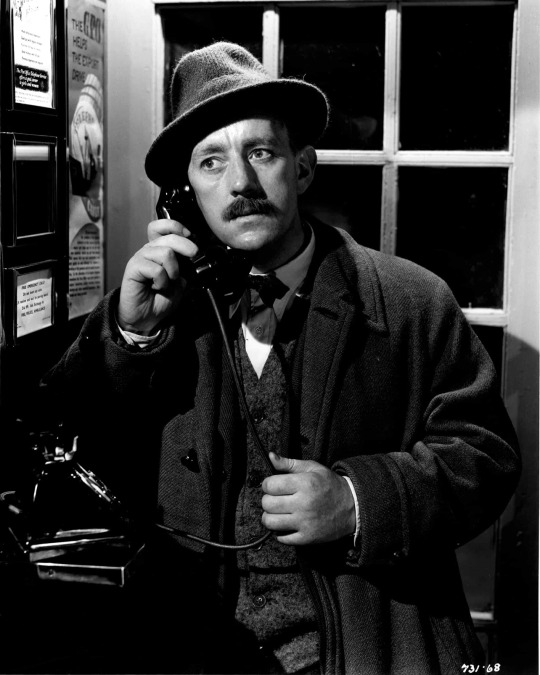
A Run for Your Money (1949)
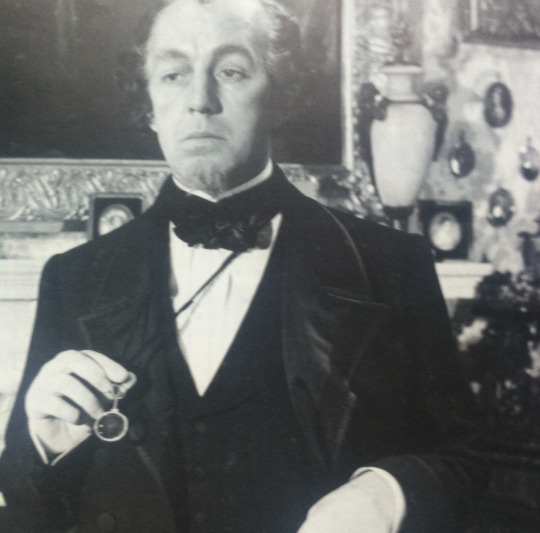
The Mudlark (1950)

The Lavender Hill Mob (1951)

The Man in the White Suit (1951)
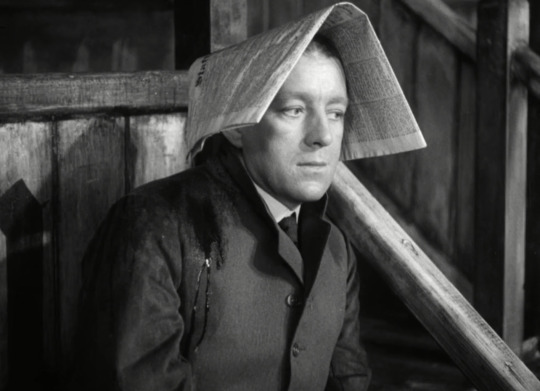
The Promoter (1952)

The Captain's Paradise (1953)
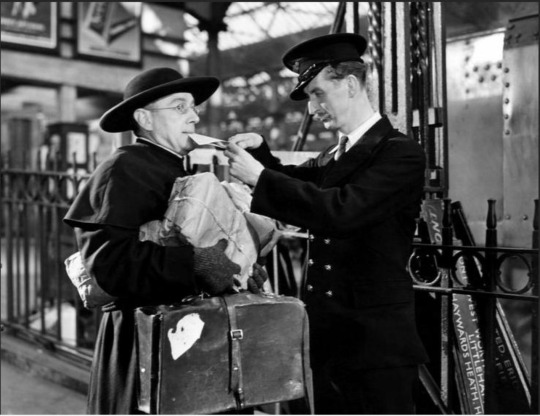
The Detective (1954)
#Alec Guinness#Great Expectations#Oliver Twist#Kind Hearts and Coronets#A Run for Your Money#The Mudlark#The Lavender Hill Mob#The Man in the White Suit#The Promoter#The Captain's Paradise#The Detective
6 notes
·
View notes
Text

Make-up artist Stuart Freeborn transforming Alec Guinness into Fagin on set of David Lean's Oliver Twist (1948)
Stuart Freeborn is also the the chief make-up artist for Star Wars
#Oliver Twist 1948#david lean#Fagin#the one and only Alec Guinness!!!#make-up#Stuart Freeborn#charles dickens#alec guinness
3 notes
·
View notes
Text
Jenny's June Movies
Portrait of Jason (1967)
Furiosa (2024)
Beijing Watermelon (1989)
Jubilee (1978)
The Player (1989)
Oliver Twist (1948)
Ugetsu (1953)
Mank (2020)
Living (2022)
The Wonder (2022)
Summertime (1955)
Don't Look Now (1973)
The Elephant Man (1980)
Klute (1971)
The Man Who Laughs (1928)
Portrait of Jason: (***) Fascinating documentary that is just a talking head interview. Film making doesn't get any simpler than this, but Jason Holliday is such an interesting subject that it doesn't matter. Director Shirley Clarke brings us along for the wild ride of a long conversation with this gay, black hustler and cabaret performer living in the Chelsea Hotel in the 1960s.
Furiosa: A Mad Max Saga (***) My favorite so far in the Mad Max saga, the story is rooted in a terrific performance from a child actor (Ayla Brown) melded digitally with Anna Taylor Joy's portrait of the young Furiosa and her rise to the exalted position of Praetorian in the brutal world of the citadel. Containing Easter eggs from all four of the previous outings as well as a confirmation of the mutability of the Mad Max Universe (narration at the end describes the story as a legend whose telling may change depending on the teller), the biggest joy was the quiet, heartbreaking romance between Furiosa and Praetorian Jack (Tom Burke).
Beijing Watermelon (***): After watching Nobohiko Obayashi's House, earlier this year, I was expecting something far crazier than this relatively quiet portrait of a man consumed by helping a group of Chinese students by feeding them from his market stall, to the detriment of his own family and eventually his own health. A memorable fable about the way in which simple acts of care can transform a community, as well as the ways in which ego can play a part in generosity. The movie only gets as experimental and strange as the director's previous work, toward then end, when filming the ending set in China was impossible due to massacre of student protestors in Tianamen Square. Obayashi turns the story into a meditation of film making with a fourth-wall breaking technique to address the difficulties with the viewer. The movie leaves you feeling an ache of sadness especially when you remember the actual history behind it.
Jubilee (**) Derek Jarman directs this violent, bleak look at dystopian Jubilee Britain, featuring a host of punk icons from Adam Ant to Siouxsie Sioux and the Slits. There is also some nonsense about Queen Elizabeth I time traveling into the film. Honestly the most interesting part of the film for me were the glorious aesthetics, with clothes and make-up by Viivan Westwood, who later disowned her work in the film. Adam Ant is the biggest surprise in the movie, he is always charming and watchable, a stand out among the rest of the cast.
The Player (***) Not my first time through this movie, but another viewing solidified it as the top of the pile for 90s Altman. A wonderfully meta film about film making that is so loaded with jokes about film history and industry insider details that it impossible to catch them all on the first viewing. All of this in a tidy film noir package, led by Tim Robbins who plays a souless film executive being pursued by a disgruntled screenwriter.
Oliver Twist (***1/2) Stands out as the best and most memorable new to me film of the month, with a painful caveat. One of the major milestones in director David Leans estimable career, Oliver Twist is marred by his insistence on keeping the character Fagan as he is depicted in the novel, a hateful Jewish stereotype.. The visual look of this film, with its grimy, slicked cobble streets and rooftops of London nightmare fantasy set, would go on to inspire so many movies, but most notably, Carol Reed's The Third Man which came out the following year. Robert Newton is a standout as a terrifying and nuanced Bill Sykes and John Howard Davies ably carries the film as Oliver. Lean beefed up Oliver's role in the last third of the novel, setting up a chilling and dramatic conclusion to the action.
Ugetsu: (***) Another immediate post war film, that is set is Japan of the past in the time of warlords. A pair of couple navigate the coming of war in different ways, leading to devastating unforeseen consequences. A haunting--quite literally--film about war and the inability to ever fully return from it.
Mank (***) This was my second time through David Fincher's dreamy movie, inspired by real life story of writer Herman Mankiewitz, screenwriter of Orson Welles' Citizen Kane, told in a style that closely mimics that classic. While all of it is pretty to look at, and the ensemble cast is up to the task of creating William Randolph Hearst's inner circle, attempts to make real life into too much of a movie, make the whole thing creak at the hinges a bit. Tom Burke stands out as Welles, Amanda Seifreid who I'd previously only seen in Mamma Mia, gives a lovely performance as Marion Davies, Hearsts mistress, while Gary Oldman is transformed through make-up and accent work into Mank. I wish I wasn't so aware of the stage craft, but that too is like the original I suppose and there is enough insider stuff in this movie to make a film nerd like me happy through any number of screenings.
Living (**1/2) a remake of an Akira Kirosawa film, about a dying bureaucrat who does his best to make an impact before he dies, features Bill Nighy in the lead role. Nighy creates a subtle portrait of a man who is practically fossilized in his desk at work, slowly coming to life as he takes on the project of getting a playground built in the post-Blitz London.
The Wonder (**1/2) One can be forgiven for confusing this movie with Lady MacBeth, which also stars Florence Pugh as a young woman in rural Britain, getting involved in a deadly web of intrigue. Like that film, The Wonder features a lot of scenes of Pugh in Victorian dress walking in the windblown landscape, and staring into the camera while she is seated quietly in a room. The setting here is rural Ireland twenty years after the Great Hunger. Pugh plays a nurse who is sent from England to watch a young girl who has supposedly survived months without eating. Hired by the village to either prove or disprove the so called Wonder of the title, the film slowly builds into almost unbearable tension in the final acts. Lovely performance from the whole cast, including, once again, TOM BURKE. (Are you seeing a theme in June Movies????)
Summertime (****): Classic David Lean, classic romance. Is it gay? Well yeah, I think Hepburn's character is a lesbian who has finally met the one dude who does it for her and he fancies her too and it foments a complete crisis of identity. Also it's an ode to women traveling alone and living their best life and having fun and doing walks of shame for the first time and oh I just love seeing this middle aged woman get to be 20 something!. Rosanno Brazzi is so cute and this is the movie that made me fall for him.
Don't Look Now (***): So I watched this and Summertime back to back and wow you could not get two more different views of Venice While Lean's film is more of a straight forward travelogue it's not excessively gritty or excessively pretty. It's balanced and though it is a tourists view it still takes on stuff like throwing garbage in the canal or getting lost. All of those things are present in Don't Look Now but they take on a darker edge. This is a city designed to hypnotize seduce and confuse you and you'd better be careful or lose your life. Features a great twist and absolutely top tier 70s psychological horror with lots of creepy vibes.
The Elephant Man (***): I had not seen this since it was in the theaters and I was so blown away by it. It's every inch a David Lynch film...it's like Eraser head with a big budget in many ways. I seriously can't believe someone watched Eraserhead and said: yeah lets give this guy millions to make our studio film. Even more amazing that the final product is so fucking successful as both a studio film and a distinct piece of Lynchian art. Johnny Gielgud and Wendy HIllier are both in this and both fabulous and Anne Coates is the editor. It's like an ode to British Noir films like Gaslight and The Lodger and especially Oliver Twist--and even a little Pygmalion callback in one scene that HIllier is in. John Hurt plays John Merrick and is heartbreakingly human when those around him can only see a monster. Lynch makes the choice to reveal his face about 45 minutes in and it's so impactful. The makeup is incredible, but also he lets the character exist for a long time so he isn't just the makeup. Anthony Hopkins is amazing playing the Victorian doctor who "rescues" Merrik and ends up exploiting him as well. The real horror of this film is in the realization of his own culpability/responsibility that gets shifted onto the audience.
Klute (***): Part of my Donald Sutherland memorial minifest, this movie really belongs to his female costar. Jane Fonda plays Bree Daniels, a Manhattan sex worker who is being stalked by a former client. There is nothing in The Conversation that isn't done first and frankly better in Klute, using modern technology and paranoia about it to maximum effect. Sutherland plays the titular cop, Klute who has assigned himself to the cause of protecting Daniels. An interesting love story develops between the hardened and wary Daniels and the hardened and wary cop.
The Man Who laughs (***): I got to see this for the first time on the big screen with a new original score performed live, which is the best way to see silent films. Veidt is incredible acting through and over and around this makeup, expressing so much with his eyes. Like The Elephant Man, this is a movie about the way society perceives difference as monstrous. A beautiful love story and a revolutionary social justice vibe tie the room together.
#Jenny's June Movies#OK well I beat my goal of finishing before the end of July!#June was a fantastic month for film watching my summer has kind of sucked in many ways#but at least I'm getting my money's worth out of criterion channel
19 notes
·
View notes
Text
The little shit’s going to freeze to death if he’s not careful
5 notes
·
View notes
Photo

22. Oliver Twist (Oliver Twist, 1948), dir. David Lean
6 notes
·
View notes